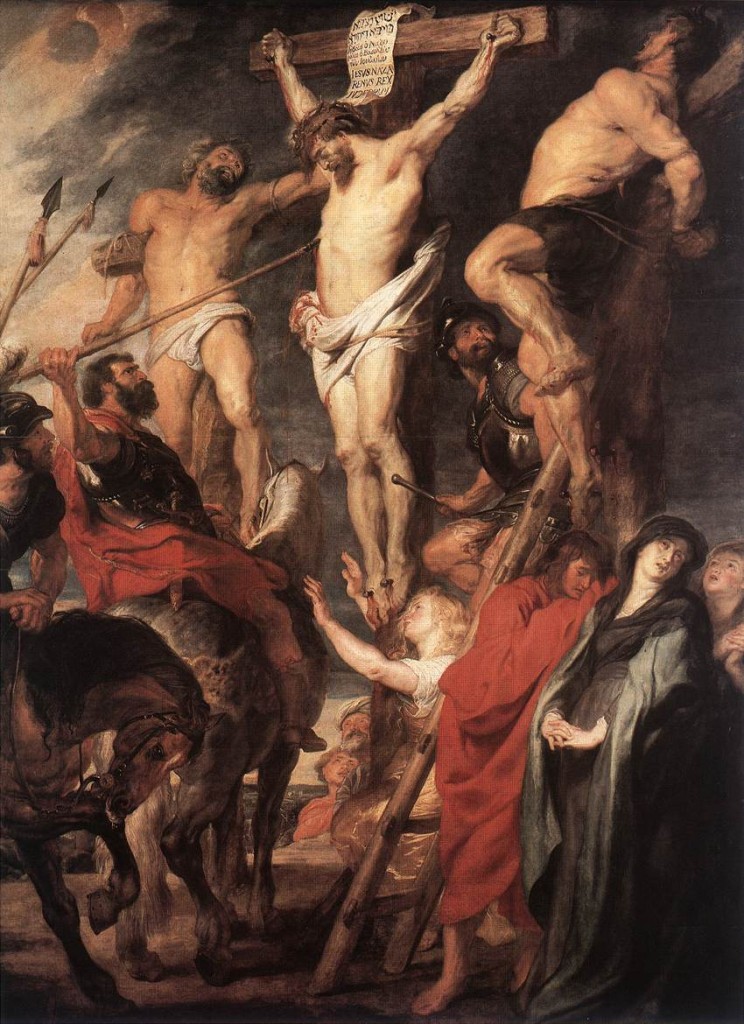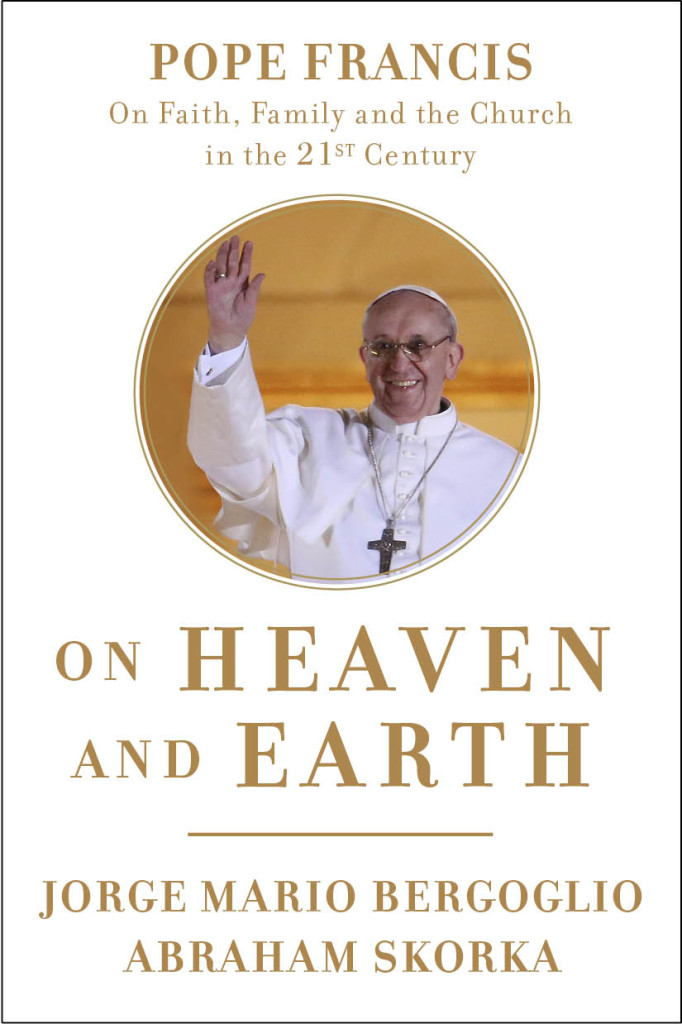“Both read the Bible day and night, but thou read black where I read white.”
William Blake (1757 –1827)

We are advised that the fear of the Lord is the beginning of wisdom. [1]Job 28:28 Those possessed of it are led in the way of righteousness and their lives filled with treasures. [2]Proverbs 8:12-21 But those that discount with it dice with their own souls. [3]Proverbs 28:36
If where a self-confessed criminal ended were any indication of the path he took, it might be safe to assume that wisdom was not his compass. He probably lived much of his adult life with scant regard for the Lord.
However, accounts of our Lord’s passion present us with the proposition that one criminal negotiated his way around this age-old wisdom with what were probably his last words.
The Good Book wasted no ink on how the man came to be one of the two hanging on the cross alongside the Lord. [4]Luke 23:32-43 He was referred to simply as a malefactor, a word for a felon or an evil doer. But the fellow left us in no doubt that the cross was his just deserts. He said he was guilty as charged. He had not lived wisely. He had taken wrong turns. But at the end of the day it wasn’t how he lived that mattered. It was what he did with his very last breath. As he bowed out, he demonstrated that all along he had a prized faculty on him: a keen eye.
It took a thief to subvert divine calculus on man’s capacity for self-redemption.
God had told Samuel that man looked at countenance only; it took a thief to stand up for us all. Solomon had written that though you pounded a fool in a mortar you couldn’t cure him of foolishness; [5]Proverbs 27:22 it took a thief to challenge that narrative. It took a thief to subvert divine calculus on man’s capacity for self-redemption. As that felon negotiated his way to instant passage to paradise, one couldn’t help thinking he did more to edify than all the disciples who at that hour stayed a safe distance from the Saviour. He definitely had one over most evangelists who only ever despaired at man’s hopelessness.
How he did it?
Hard to tell.
After twenty-four hours of being spat at and scourged; after twenty-four hours of being worked upon by a Roman legion at their bestial best; after twenty-four hours at the receiving end of gratuitous savagery, the Lord Jesus Christ wouldn’t have looked a pretty sight. But we are told that this criminal saw beyond three days brew of sweat, spittle and blood, lacerated flesh and sporting by Roman soldiers. Beyond all that, he saw royalty, dominion and an afterlife.
The disciples on the other hand only saw failure. Three years at the master’s feet, feeding on transcendental wisdom, gleaning a divine insight did not prepare them for the disappointment of the cross. The Lord was not supposed to die like a common criminal. They’ve sacrificed too much of their time and life to get romantic about the symbolism of death on the cross! They felt let down by a man they held up as Lord who couldn’t command fire from heaven upon his enemies. Elijah was a mere prophet and he did better! How could a Messiah come to such a pass?
What worked for the thief but passed over the disciples? How was he able to make his one moment count whereas, Thomas needed to prod every possible scaring on the risen Christ? Why was it that a man who had a brief moment with Christ Jesus – a moment at a juncture in his life not particularly conducive to learning – could come out with a result that those who had three years of revelation could not achieve? How was he able to rise above the mind altering pain crucifixion was, at that very moment, visiting on him to worship at the altar of salvation?
How we decode signifiers influences what we make of propositions.
His one moment of enlightenment is trumped by the vision of the transfiguration, Peter’s declaration of Christ’s Messiahship, the annunciation and several other divine declarations of the uniqueness of the Being and calling of the Lord. This therefore is not simply about an ability to discern – or a lack thereof.
Perhaps to help make sense of this story one would need to consider the felon at the other end – for as it is written, there were two of them. He mocked. He challenged the Saviour to be, well, a saviour. By his mocking we know that both felons were aware of the claims made about Jesus; they only differed in their mental impression of what salvation meant.
For one, it was to leverage over and beyond responsibility and culpability for an abject lack of moral rectitude. For the other it was a journey that started with a humble reflection on a hedonistic past. For one salvation meant being delivered from physical bond. For the other it meant being elevated into transcendence. For one it meant to be unleashed with power back into the material world. For the other it meant being delivered from the material world. While the one wondered what a ‘so-called’ saviour was doing on the cross, the other knew the saviour was right there and then busy doing the work of salvation.
How we decode signifiers influences what we make of propositions. Our attitudes, perceptions and mental impressions are influenced by history, culture, traditions and politics, to name a few; and these in turn impact our dialogue with heaven. Permit me to take licence with the Chinese philosopher, Confucius’ aphorism: if what is meant is not what is understood, what should be done would remain undone.
The disciples of our Lord stumbled at every turn because they poured new wine into old wine skin. To the Jew salvation often had no otherworldly significance. It simply meant deliverance from the oppressor – from the Philistines, Babylonians, Assyrians, Romans, or any of the other nations that were inexplicably, perennially bent on destroying the Jewish race. That experience fed into the disciples’ understanding of the mission of the Messiah. The cross was an unpleasant distraction. Hell, it was an aberrant.
God used the felon on the cross to challenge us to review the value system we bring into our search for meaning.
To Christians in much of Africa, salvation means deliverance from the neighbourhood witch, a wicked step-mother, ancestral curse or a generational affliction. There are those for whom salvation has come to mean deliverance from an oppressive socio-economic regime and poverty. Folks have bespoke handles on salvation, depending on what floats their boat.
We bring a lot of baggage into our interpretation of scripture and our relationship with God. This invariably leads us to create religions and theologies in which God is our alter ego. He pretty much thinks and acts as we do. As Archbishop Desmond Tutu wrote in Made For Goodness:
“…Our operational theology describes a god who is less than God. Our operational theology describes a god of human making. Our prayers call forth a god on a human scale.”
God used the felon on the cross, the thief that stole the show, to challenge us to review the value system we bring into our search for meaning. Before his trip to Golgotha, Christ suggested that it is not enough simply to read scripture, how we read scripture matters. [6]Luke 10:26
After the sombreness and excitement of the Passion and Resurrection, their import to our lives and relationship with Heaven, let’s position ourselves adequately for the Ascension. Let’s take time out to assess whether we are on the same wavelength as Christ Jesus.

Guardians of Faith

